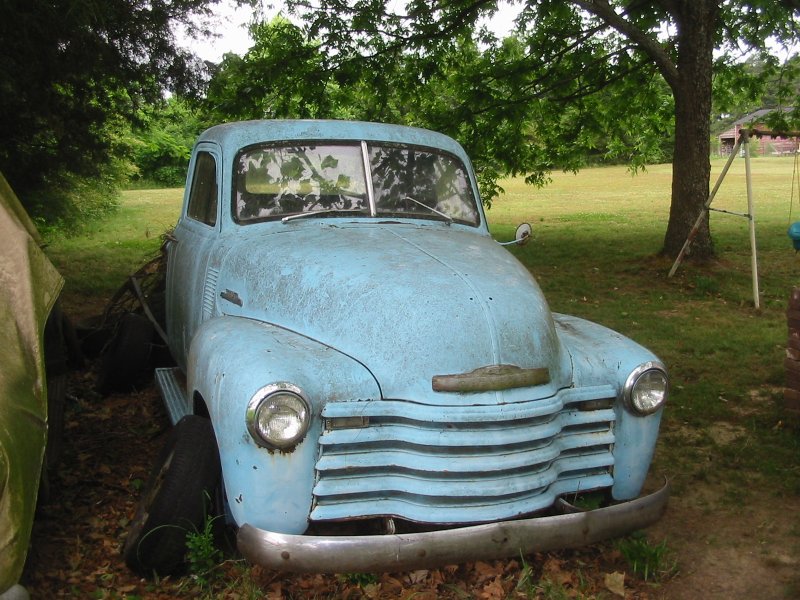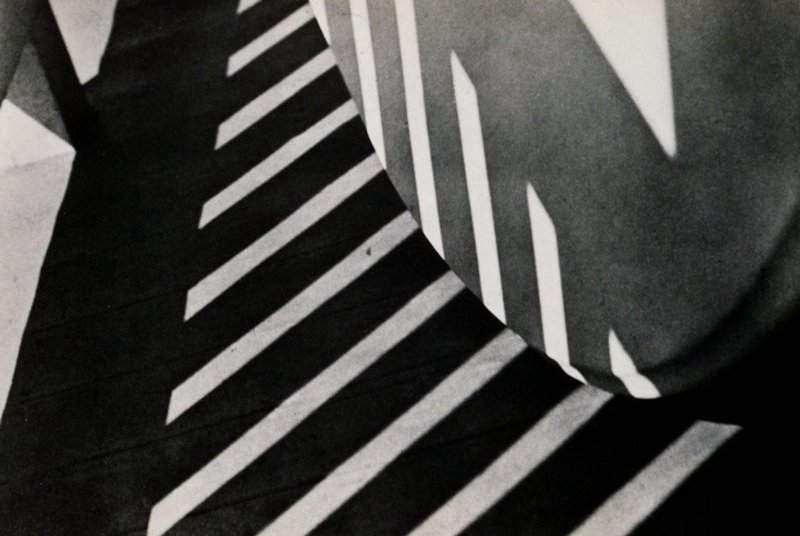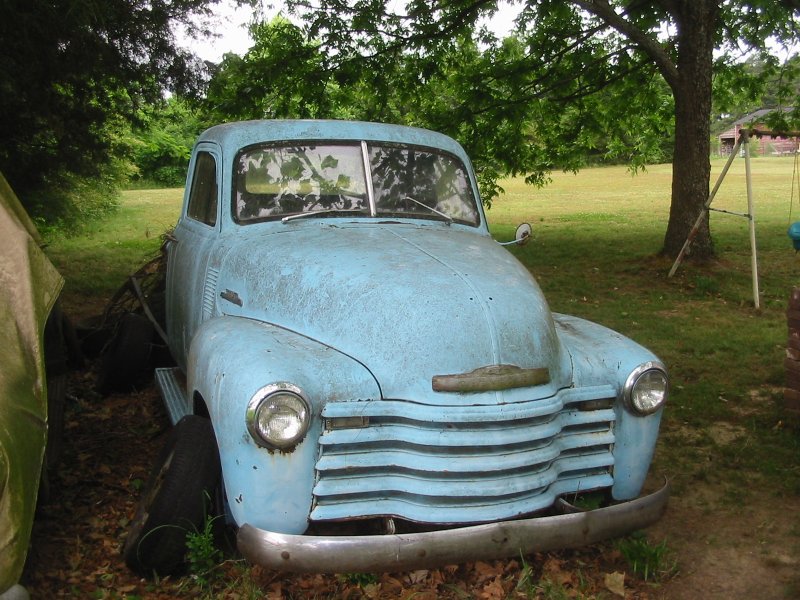
After not having a job for two years— Big Sur, sleeping among redwood trees, pot, LSD—it surprised me in early September 1967 to find that all it took to be hired as a substitute teacher in Oakland was to shave off my beard, buy a clean shirt from the Goodwill store, and fish among my belongings for my teaching credentials from the State of Ohio.
By the end of October paychecks were coming regularly and I could afford an inexpensive vehicle. Near my apartment was a City of Berkeley impoundment lot, filled with older cars and light trucks. There I found a 1951 Chevrolet carry-all, a panel truck with windows all around. The color inside and out was military green. It cost me sixty dollars and then another twelve dollars for a battery. After a bit of tinkering, it ran perfectly.
Someone must have stolen the radio, since there was a gaping hole in the dashboard. Aside from looking out of date, the dented fenders made some of the kids in Roosevelt Junior High School, where I was hired as a full-time teacher in January, laugh teasingly at me and my truck. Roosevelt was predominantly black, so, belonging to a young white teacher, the Chevy served as a kind of leveler. After classes one day, one student yelled, “Hey, Mr. Opie! Where’d you get that pile of junk?” Once in a while I drove a cluster of boys—two brothers who were black and a white friend—home, dropping them off at one of their neighboring houses. The younger brother, in the seventh grade, derived consistent pleasure from sliding into the back seat and saying, “Home, James.”
When summer came I was all set to drive back to Ohio to visit my parents, for the first time in several years. The military color of my Chevy didn’t seem quite right for visiting home, so I paid fifty or sixty dollars to have it painted. I chose a blue that ended up looking too intense. But this didn’t matter. No color on Earth could have made that vehicle look like something that belonged in the family driveway. (Soon after I arrived home, my father mentioned that it had leaked a patch of oil “as big as your hand”–he held up his–on the concrete, a spot that was still visible twenty years later when my mother moved to her final home, after my father’s death.)
Having watched me from afar during the previous several years, hurt and uncomprehending, my parents surely had mixed feelings about my approaching visit. But I was working again and had reentered society. At one point, when my father asked me, “Jim, are you psychedelic?” I couldn’t say anything in response. We leaned a lot on silence during that visit, but, all in all, it didn’t go so badly. Then I drove to the southern part of the state, to Barnesville. My destination was the home of a friend named John Hutchinson, whom I had met in Athens, Ohio, during the time when I was teaching nearby in a rural high school. His friends in Athens all called him “Lost John,” due to his monologues about who was lost—all of us—and who needed to begin thinking about overwhelmingly large matters—again, all of us.
John had visited me briefly in California, where he took LSD, an experience that shifted his concerns from the state of our planet to the state of the entire universe. We had exchanged a few letters after he returned to Ohio. Several months before heading home to visit my parents, he’d written that he was back in Barnesville. That letter ended with: “Come meet my folks.”
The way he spoke about his parents, especially his dad, had always appealed to me. Perhaps what I saw in John was a direction that, a layer or two below the surface, I wanted to pursue in myself. I was just beginning to distrust the sour, repetitive thoughts about my own father, and no longer knew whose attitudes bothered me more, my father’s or my own.
The left rear axle of my Chevy broke when I was close to Barnesville. With a hot summer sun overhead, I walked the rest of the way, guessing that John wouldn’t be hard to find, even without his address, which I had left in Berkeley. On the edge of Barnesville a man named Walter, who wanted to be helpful and to have someone to talk to, joined me and we walked all the way to the front porch of John’s family home.
“Lost John”— of average height, with dark hair—didn’t seem at all lost in his hometown. I never saw him so relaxed. When I asked about his parents, John said that they weren’t there at the moment. His dad would be back in an hour or so, he said. His mother was helping a friend and wouldn’t be home until before suppertime.
John didn’t own a car, so we walked, first to my carry-all, parked off the road, to see what part was broken, and then to the town’s auto wrecking yard, which smelled of summer weeds and warm grease. John talked to the owner, who pointed to a corner of the lot where we found a Chevrolet panel truck with that same axle. Within twenty minutes, John held the part we needed in his greasy hands.
Then he called a local mechanic, who sent his wife over to pick us up. John didn’t seem to notice how attractive this woman was. He spoke to her the way people in rural towns, on the edge of “family,” tend to speak with each other. It was hard to take my eyes off her—such a remarkable combination of purity and sensuality.
At the repair shop, she kissed her husband on the cheek before going into the office. It wasn’t a habitual peck. She kissed him. She stepped away and John thanked her for the ride as she looked back for an instant and waved, walking through the office door.
The mechanic said that he would tow my Chevy to his shop and, if everything went as expected, it would take a half a day to get it going again—plus about ninety dollars.
Walking with John back to his parents’ home, I asked him if they knew about him having taken LSD. He said that he talked with them about everything. They just listened. His father, who he called “Oldie,” never, in John’s words, “cast a judgment.”
I mulled this over silently, thinking about my own father. As if he could tell what I was thinking about, John stopped walking on the blacktop road and turned to me, gaining my full attention.
“Oldie always says, ‘Let sleeping dogs lie.’ He says, ‘If you want to make an old turd smell, just poke at it a little.’ Jim, if you could let your dad be he wouldn’t eat on you so.”

Arriving back at the family home, there on the front porch was “Oldie” himself, whom I had heard quoted so many times. “Oldie” said this and “Oldie” said that. His previous title, “The Old Seed,’ it had been explained, somehow was shortened to “Oldie.”
John’s father shook my hand, looking into my eyes with kindness. I had expected someone older. He was younger than my own dad, then in his late fifties. After introductions, we all sat there on the porch.
John surprised me by going straight into the heart of the dilemma. This must have been part of an ongoing conversation between son and father.
“Dang it, Oldie,” he said. “It’s an infinite conundrum. It stands to reason that the universe is unified. But how? You’ve got all this positive force, all this good over on one side, and all of the negative force, evil or whatever you want to call it, on the other side. Energy, matter, space! Male, female! Everything’s in motion! Attracting, repelling. And time itself, instantaneous, without change, but always moving, and maybe never moving at all. Oldie, there’s got to be a way to resolve all of this, to balance it! There must be! It’s all got to be one!”
Thrusting his hands with outspread fingers into the air, John stamped one of his feet on the floor of the porch in a way that I had seen so many times, for his speeches often seemed to require this punctuation.
“Dang it! I can’t accept that it’s the God that people in church talk about. It’s bigger than God. It’s…God’s God!”
John’s father sat passively through this and when John sat down next to me Oldie kept sitting in his chair, without any change of expression. John stood up again and thrust his fingers into the air, but this time didn’t say anything and his arms gently fell to his sides.
I don’t remember what I was thinking then. Did I think, “Lost John”? Or was I thinking about the questions he had raised? Or about how his father was absorbing all of this? Or perhaps I thought about how impossible all of this was, in the light of what I could and could not say to my own father.
Mr. Hutchinson got up and came over to where John and I were half-leaning, half-sitting on the railing. Standing in front of us and speaking without haste, he addressed his son and me at the same time.
“Well, you have these questions. You young men have taken this LSD and you have a lot of questions. You saw something. And it’s hard to put whatever you saw out of your minds. But let me tell you how, in my experience, life works—how it works for a man.
“For a man there’s an order in life. First, he needs to get himself a good truck, and by that I mean a job—something he’s naturally good at that earns him a living and connects him with the world, with other people. First, a good truck.
“After that, with any luck he attracts a good woman. Maybe he’s got to look for one and maybe one just shows up. They’re around. But you need to go at life in the proper order to be sure of finding one. If you mix up the order, things get harder. Maybe you find the woman first and then the truck, or maybe you don’t find much of anything. Either way, putting these big questions you like to ask before you get your truck can be risky. You’re apt to never find very much you can live by. Very big answers have a way of slipping through very small fingers. You know, boys, a man can get stuck looking at the cosmos, as you call it, or at other men’s wives. Sometimes a person doesn’t end up with a real grasp of the big things he thinks he’s after, and doesn’t get the most basic things right, either.
“A man needs what he really needs. No one can change that. First, get yourself a truck. Then a good woman. After that, you’ll be surprised how these other things, the cosmos and everything, find a way of working themselves out. Then you can question things from a patch of ground that you’ve earned, and everything means more to you. From his own patch of ground a man can see a long way.”
John and I were silent. Not wanting to stare, I glanced at Oldie, trying to comprehend what he had just said.
Did he know, somehow, that at least one of us was ready to hear that? ♦
From Parabola Volume 32, No. 4, “The New World,” Winter 2007. This issue is available to purchase here. If you have enjoyed this piece, consider subscribing. Four times a year Parabola has explored the deepest questions of human existence. Without your support, we would cease to exist. Please consider helping us by making a donation.
